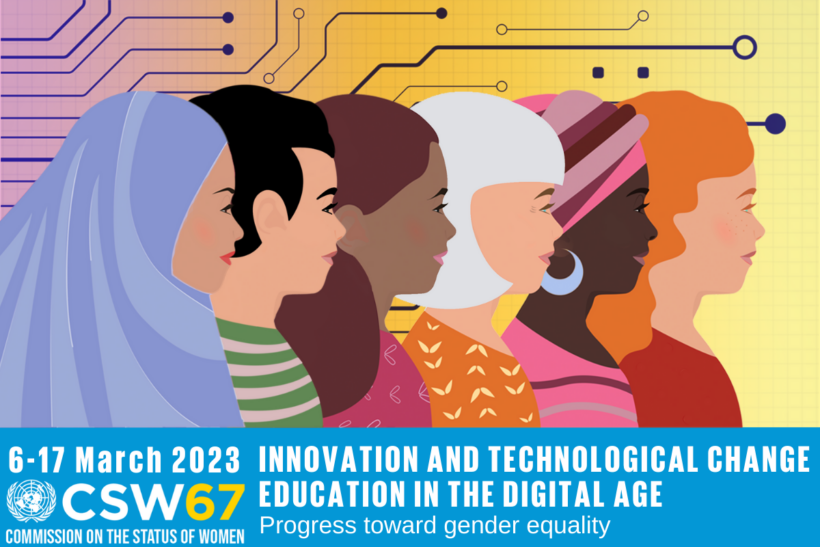The sixty-seventh session of the Commission on the Status of Women (CSW) is currently underway at the United Nations in NYC. Since its first meeting in 1947, this important conference provides a forum to assess the progress of international efforts to advance women’s rights and gender equality, including (but certainly not limited to) UNSCR 1325, a landmark resolution adopted by the Security Council on October 31, 2000. The resolution recognizes the disproportionate impact of armed conflict on women and girls and the importance of their participation in all efforts to prevent and resolve conflicts and to build peace.
UNSCR 1325 was passed by the U.N. Security Council thanks to the hard work of the Coalition on Women and International Peace and Security, which formed in response to the 1995 Beijing Declaration. It shifted the global security paradigm by putting gender equality and women’s rights at the core of peacemaking, peacekeeping, peacebuilding and conflict prevention efforts. It recognized that women are not just victims of conflict; they are peacebuilders, decision-makers and influencers. It also highlighted that long-lasting peace cannot be achieved without women’s meaningful participation.
Currently, the more than 100 NGO’s who make up the Global Network of Women Peacebuilders are working tirelessly to implement the objectives of UNSCR 1325 according to its four basic pillars: Participation, Protection, Prevention, and Relief and Recovery. These basic goals encompass increased participation of women at all levels of decision-making to prevent and resolve conflict; the protection of women and girls from sexual and gender-based violence, including in emergency and humanitarian situations; prevention of violence against women, including by prosecuting those responsible for violations of international law; and relief and recovery measures to address international crises through a gendered lens, including by considering the needs of women and girls in the design of refugee camps and settlements. As of October 2020, 86 UN Member states (including the U.S. in 2011) have created National Action Plans to implement the tenets of UNSCR 1325.
The UN Secretary General’s October 2022 Report on Women, Peace, and Security articulated recent challenges in advancing the goals of UNSCR 1325, stating, “Despite normative agreement since the year 2000 and evidence that gender equality offers a path to sustainable peace and conflict prevention, we are moving in the opposite direction. Today, the world is experiencing a reversal of generational gains in women’s rights while violent conflicts, military expenditures, military coups, displacements and hunger continue to increase.” The report notes the inextricable link between misogyny and authoritarianism, the global increase in military expenditures, and the heightened threat of nuclear weapons being used in conflict.
Despite these concerning trends, international women’s organizations and peace activists remain undaunted in continuing to advocate for the implementation of sustainable development goals that prioritize women’s participation in the peacemaking process, the health and safety of women and girls, and a holistic approach to conflict prevention that emphasizes disarmament and the reduction of military budgets worldwide. While CSW 67 is underway in NYC, we salute the tireless work and accomplishments of these global peacemakers and thank them for their courageous efforts!
In Peace,






